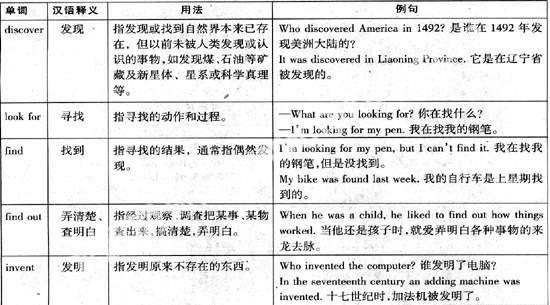中学生信箱
2009-05-25远航
远 航
新课即将结束,我们将进入紧张的中考冲刺复习。本栏目将继续为广大师生免费解答英语学习方面的困惑,和大家一道步步为营、决胜中考。
来信请寄:430079 华中师范大学外国语学院《中学生英语》杂志社 初中部 收
E-mail:187223754@qq.com
热线电话:027-67868695
1. 问:Unit 15中有这么一句话:I am writing to say that I am against building a new zoo in our town.其中be against怎么理解呢?
答:be against意为“反对”,against是介词,后面接building是动词-ing形式。例如:
Many people are against the plan. 许多人反对这个计划。
思路拓展:
against作为介词还可译为“防止、对着、靠着”,表示状态。例如:
He got an injection against the disease. 他打了一针来预防这种疾病。
The cupboard is against the wall. 橱柜靠着墙。

3. 老师您好:您能告诉我怎么区分一般过去时和现在完成时吗?
答:1)一般过去时只表示过去发生的事情本身,不涉及与现在的关系;现在完成时则强调过去某一动作对现在造成的影响或结果。试比较:
I saw the film last week. 我上周看过这部电影。
I have seen the film. 我看过这部电影。
2)一般过去时常与特定的过去时间状语连用,如yesterday, last week, two months ago, just now, once upon a time等,译成汉语时,往往可加“过”、“了”等词。例如:
I saw him in the town yesterday. 我昨天在城里见过他。
He died three years ago. 他三年前去世了。
3. 现在完成时强调过去发生的动作对现在造成的影响,所以往往和表示“现在”在内的时间状语连用,如this week, since 1949, for a long time等。除此之外,下面的副词也常与现在完成时连用:just, ever, already, yet等。在汉译时,往往可加“刚”、“曾”、“已经”等词。例如:
He has just come back from Beijing. 他刚从北京回来。
I havent finished reading the book yet. 我还没看完这本书。
